- Home
- Kathy Reichs
Déjà Dead Page 6
Déjà Dead Read online
Page 6
“So, where should we eat?”
I wasn’t really changing the subject since there hadn’t actually been one.
“What do ya feel like?”
I thought about it. I usually make such choices by imagining food on a plate in front of me. My mind definitely prefers a visual mode. I guess you could say, when it comes to food, it’s graphics, not menu, driven. Tonight it wanted something red and heavy.
“Italian?”
“Okay.” She considered. “Vivaldi’s on Prince Arthur? We can sit outside.”
“Perfect. And I won’t have to waste this parking place.”
We angled across the square, passing beneath the large broadleafs that arch above its lawn. Old men sat on benches, talking in groups, surveying their fellow citizens. A woman in a shower cap fed pigeons from a bag of bread, admonishing them like rowdy children. A pair of foot patrolmen strolled one of the paths that crisscross the park, their hands clasped behind them in identical V’s. They stopped periodically to exchange pleasantries, ask questions, respond to quips.
We passed the cement gazebo at the west end of the square. I noted the word “Vespasian,” and wondered, once again, why the name of a Roman emperor was carved above its door.
We left the square, crossed Rue Laval, and passed through a set of cement pillars marking the entrance to Rue Prince Arthur. All this time no words were spoken. This was odd. Gabby wasn’t this quiet, or this passive. She was usually bursting with plans and ideas. Tonight she’d simply yielded to my suggestion.
I watched her, discreetly, from the corner of my eye. She was scanning the faces we passed while simultaneously chewing on a thumbnail. The scrutiny didn’t appear to be absentminded. She seemed edgy, searching the crowded sidewalks.
The evening was warm and humid, and Prince Arthur was jammed. People swirled and eddied in all directions. The restaurants had thrown open their doors and windows, and the tables spilled out helter skelter, as though someone planned to arrange them later. Men in cotton shirts and women with bare shoulders talked and laughed under brightly colored umbrellas. Others stood in lines, waiting to be seated. I joined the line outside Vivaldi’s while Gabby walked to the corner dépanneur to buy a bottle of wine.
When we were finally settled Gabby ordered the fettuccine Alfredo. I asked for veal piccata, spaghetti on the side. Though seduced by the lemon, I remained partially loyal to the vision of red. While we waited for our salads, I sipped a Perrier. We spoke some, moving our mouths, forming words, saying nothing. Mostly we sat. It wasn’t the comfortable silence of old friends accustomed to each other, but a dialogue of uneasiness.
I’m as familiar with the ebb and flow of Gabby’s moods as I was with my own menstrual cycles. I sensed something tense in her demeanor. Her eyes didn’t meet mine, but roved restlessly, continuously exploring as they had in the park. She was obviously distracted. She reached for her wine often. Each time she lifted her glass the early evening light kindled the Chianti, making it blaze like a Carolina sunset.
I knew the signs. She was drinking too much, trying to blunt the anxiety. Alcohol, the opiate of the troubled. I knew because I’d tried it. The ice in my Perrier was slowly melting, and I watched the lemon resuscitate itself. It dropped from one cube to another with a delicate fizzing sound.
“Gabby, what’s up?”
The question startled her.
“Up?”
She gave a short, jittery laugh and brushed a dreadlock from her face. Her eyes were unreadable.
Taking her cue, I moved once again to a neutral topic. She would tell me when she was ready. Or perhaps I was being a coward. The price of intimacy would be its loss.
“Do you hear from anyone from Northwestern?”
We’d met as graduate students in the seventies. I’d been married. Katy was a preschooler. I envied Gabby and the others their freedom back then. I’d missed the bonding experience of all-night parties and early morning philosophy sessions. I was their age but lived in a different world. Gabby was the only one with whom I’d grown close. I’ve never really known why. We look as different as two women can. We did back then. Perhaps it was because Gabby liked Pete, or, at least, pretended to. Flashback: Pete, military-crisp, surrounded by flower children high on grass and cheap beer. He hated my grad school parties, masked his discomfort behind cocky disdain. Only Gabby had made the effort to break through.
I’d lost contact with all but a few of our classmates. They were scattered across the States now, most at universities and museums. Over the years Gabby had been better at maintaining ties. Or perhaps they sought her out more.
“I hear from Joe now and then. He’s teaching at some podunk place in Iowa, I think. Or Idaho.” American geography had never been Gabby’s strong suit.
“Oh yeah?” I encouraged.
“And Vern’s selling real estate in Las Vegas. He came through here for some sort of conference a few months ago. He’s out of anthropology and happy as a clam.”
She sipped.
“Same hair, though.”
This time the laugh sounded genuine. Either the wine or my personal charm was relaxing her.
“Oh, and I got an e-mail message from Jenny. She’s thinking of getting back into research. You know she married some yo-yo and gave up a tenured position at Rutgers to follow him to the Keys?”
Gabby didn’t usually mince words.
“Well, she’s gotten some sort of adjunct affiliation and is busting her butt on a grant proposal.”
Another sip.
“When he lets her. What gives with Pete?”
The question hit me broadside. Up to this point I’d been very cautious in talking about my failed marriage. It was as if the gears of my speech were jammed on the subject, and releasing them would somehow verify the truth. As if the act of arranging words in rows, of forming sentences, would validate a reality I wasn’t quite ready to face. I avoided the topic. Gabby was one of the few I’d told.
“He’s fine. We talk.”
“People change.”
“Yes.”
The salads arrived and for a few minutes we concentrated on dressings and pepper grinding. When I looked up she was sitting very still, a forkful of lettuce suspended over her plate. She’d withdrawn from me once again, though this time she seemed to be examining an inner world, rather than the one around her.
I tried another tack.
“Tell me how your project is going.” I speared a black olive.
“Huh? Oh, the project. Good. It’s going good. I’ve finally gotten their confidence and some of them are really starting to open up to me.”
She took a bite of salad.
“Gabby, I know you’ve explained this, but tell me again. I’m just a physical sciences type. What exactly is the goal of the research?”
She laughed at the familiar demarcation between the physical and cultural anthropology students. Our class had been small but diverse: some studying ethnology, others taking linguistics, archaeology, and biological anthropology. I knew as little about deconstructionism as she did about mitochondrial DNA.
“Remember the ethnographies Ray made us read? The Yanomamo, and the Semai, and the Nuer? Well, it’s the same idea. We’re trying to describe the world of the prostitute through close observation and interviews with informants. Field work. Up close and personal.” She took another bite of salad. “Who are they? Where do they come from? How do they get into hooking? What do they do on a daily basis? What support networks do they have? How do they fit into the legitimate economy? How do they view themselves? Where—”
“I get it.”
Perhaps the wine was having its effect, or perhaps I’d tapped into the one passion in her life. She was becoming more animated. Though it had grown dark I could see that her face was flushed. Her eyes glistened with the light of the streetlamp. Or maybe the alcohol.
“Society has just written these women off. No one’s really interested in them, except those who are somehow threatened by them and w
ant them gone.”
I nodded as we each took a bite of salad.
“Most people think girls hook because they’ve been abused, or because they’re forced into it, or whatever. Actually, a lot of them do it simply for the money. With limited skills for the legitimate job market, they’re never going to make a decent living and they know that. They make a decision to hook for a few years because it’s the most profitable thing they can do. Peddling ass pays better than slinging burgers.”
More salad.
“And, like any other group, they’ve got their own subculture. I’m interested in the networks they construct, the mental mapping they do, the support systems they rely on, that sort of thing.”
The waiter returned with our entrées.
“What about the men who hire them?”
“What?” The question seemed to unnerve her.
“What about the guys who go down there? They must be an important element in the whole thing. Are you also talking to them?” I rolled a forkful of spaghetti.
“I—Yeah, some,” she stammered, clearly flustered. After a pause: “Enough about me, Temp. Tell me what you’re working on. Any interesting cases?” Her eyes were focused on her plate.
The shift was so abrupt it caught me off-guard. I answered without thinking.
“These murders have me pretty uptight.” I regretted saying it immediately.
“What murders?” Her voice was becoming thick, the words rounded and soft on the edges.
“A pretty nasty one came in last Thursday.” I didn’t go on. Gabby has never wanted to hear about my work.
“Oh?” She helped herself to more bread. She was being polite. She’d told me about her work, now she’d listen to me talk about mine.
“Yeah. Surprisingly there hasn’t been much press. Her body was found off Sherbrooke last week. Came in as an unknown. Turns out she was killed last April.”
“That sounds like a lot of your cases. So what’s rattling ya?”
I sat back and looked at her, wondering if I really wanted to go into this. Maybe it would be better to talk about it. Better for whom? For me? There was no one else with whom I could do that. Did she really want to hear it?
“The victim was mutilated. Then the body was butchered and thrown into a ravine.”
She looked at me without commenting.
“I think the MO is similar to another one I worked on.”
“Meaning?”
“I see the same”—I groped for the right word—“elements in both.”
“Such as?” She reached for her glass.
“Savage battering, disfiguring the body.”
“But that’s pretty common, isn’t it? When women are the victims? Bash our heads in, choke us, then slash us up? Male Violence 101.”
“Yes,” I admitted. “And I don’t really know the cause of death in this last one since she was so badly decomposed.”
Gabby looked ill at ease. Maybe this was a mistake.
“What else?” She held her wine but didn’t drink.
“The mutilation. Cutting up the body. Or removing parts of it. Or …” I trailed off, thinking of the plunger. I still wasn’t sure what it meant.
“So ya think the same bastard did them both?”
“Yes. I do. But I can’t convince the idiot who’s working the case. He won’t even look into the other one.”
“The murders could be the work of one of these dirtbags who gets his rocks off butchering women?”
I answered without looking up. “Yes.”
“And ya think he’ll do it again?”
Her voice was sharp once more, the velvety edges gone. I put my fork down and looked at her. She was peering at me intently, her head thrust slightly forward, her fingers wrapped tightly around the stem of her wineglass. The glass was trembling, its contents rippling gently.
“Gabby, I’m sorry. I shouldn’t have talked about this. Gabby, are you all right?”
She straightened in her seat and set the glass down deliberately, holding on to it a moment before letting go. She continued to stare at me. I signaled the waiter.
“Do you want coffee?”
She nodded her head.
We finished dinner, indulging ourselves in cannoli and cappuccino. She seemed to recover her humor as we laughed and mocked the memory of our student selves in the Age of Aquarius, our hair worn long and straight, our shirts tie-dyed, our jeans slung low on our hips and belled at the ankles, a generation following identical escape routes from conformity. It was past midnight when we left the restaurant.
Walking along Prince Arthur, she brought up the murders again.
“What would this guy be like?”
The question took me by surprise.
“I mean, would he be wacko? Would he be normal? Would ya be able to spot him?”
My confusion was annoying her.
“Could ya pick the fucker out at a church picnic?”
“The killer?”
“Yes.”
“I don’t know.”
She pursued it. “Would he be functional?”
“I think so. If one person did kill both these women, and I don’t know that for sure, Gab, he’s organized. He plans. Many serial killers fool the world for a long time before they’re caught. But I’m not a psychologist. That’s pure speculation.”
We arrived at the car and I unlocked it. Suddenly she reached over and grabbed my arm. “Let me show ya the strip.”
I didn’t follow. Again the mental leap had left me out. My mind went into bridge building.
“Uh …”
“The red-light district. My project. Let’s just drive by and I’ll show ya the girls.”
I glanced over just as the headlights of an oncoming car caught her. Her face looked strange in the shifting illumination. The light moved across her like the beam of a flashlight, accentuating some features, throwing others into shadow. Her eagerness was persuasive. I looked at my watch—twelve-eighteen.
“Okay.” It really wasn’t. Tomorrow would be tough. But she seemed so anxious I didn’t have the heart to disappoint her.
She folded herself into the car and slid the seat back to its farthest position. It gave her some leg room, but not enough.
We rode in silence for a couple of minutes. Following her instructions I went west several blocks, then turned south onto St. Urbain. We skirted the easternmost edge of the McGill ghetto, a schizoid amalgam of low-rent student housing, high-rise condos, and gentrified brownstones. Within six blocks I turned left onto Rue Ste. Catherine. Behind me lay the heart of Montreal. In the rearview mirror I could see the looming shapes of Complexe Desjardins and Place des Arts challenging each other from their opposite corners. Below them lay Complexe Guy-Favreau and the Palais des Congrès.
In Montreal, the grandeur of downtown gives way quickly to the squalor of the east end. Rue Ste. Catherine sees it all. Born in the affluence of Westmount, it strides through Centre-ville, eastward to Boulevard St. Laurent, the Main, the dividing line between east and west. Ste. Catherine is home to the Forum, Eaton’s, and the Spectrum. Downtown it is lined with high-rises and hotels, with theaters and shopping centers. But at St. Laurent it leaves behind the office complexes and condominiums, the convention centers and boutiques, the restaurants and singles’ bars. The hookers and the punks take over from there. Their turf stretches eastward, from the Main to the gay village. They share it with the drug dealers and the skinheads. Tourists and suburbanites venture in as visitors, to gawk and avoid eye contact. They see the other side and reaffirm their separateness. But they don’t stay long.
We were almost at St. Laurent when Gabby indicated that I should pull to the right. I found a spot in front of La Boutique du Sex, and turned off the engine. Across the street a group of women clustered outside the Hotel Granada. Its sign offered CHAMBRES TOURISTIQUES, but I doubted any tourists frequented its rooms.
“There,” she said. “That’s Monique.”
Monique was wearing red vinyl boots th
at reached to midthigh. Black spandex, pulled to its tensile limits, struggled to cover her rump. Through it I could see the line of her panties, and a lumpy ridge formed by the hem of her white polyester blouse. Plastic earrings dangled to her shoulders, splashes of dazzling pink against her impossibly black hair. She seemed a caricature of a hooker.
“That’s Candy.”
She indicated a young woman in yellow shorts and cowboy boots. Her makeup made Bozo look drab. She was painfully young. Except for the cigarette and clown face, she could have been my daughter.
“Do they use their real names?” It was like witnessing a cliché.
“I don’t know. Would you?”
She pointed to a girl in black sneakers and short shorts.
“Poirette.”
“How old is she?” I was appalled.
“Says she’s eighteen. She’s probably fifteen.”
I leaned back and rested my hands on the steering wheel. As she pointed them out, one by one, I couldn’t help thinking of gibbons. Just like the small apes, the women spaced themselves at equal intervals, dividing the field into a mosaic of precise territories. Each worked her patch, excluding others of her gender, and trying to beguile a mate. The seductive poses, the taunts and jeers, were a courtship ritual, sapiens style. With these dancers, however, reproduction was not the goal.
I realized Gabby had stopped talking. She’d finished her roll call. I turned to look at her. She was facing in my direction, but her eyes went past me, locked on something outside my window. Perhaps outside my world.
“Let’s go.”
She said it so quietly I could hardly hear her. “Wha—?”
“Go!”
Her ferocity stunned me. A volley flew to my lips, but the look in her eyes convinced me to say nothing.
Again we rode in silence. Gabby seemed to be deep in thought, as though mentally she’d relocated to a different planet. But as I pulled up to her apartment she blindsided me with another question.
“Are they raped?”
My mind rewound and played the tape of our conversation. No good. I’d missed another bridge.

 Two Nights
Two Nights The Bone Collection: Four Novellas
The Bone Collection: Four Novellas Fatal Voyage
Fatal Voyage 206 Bones
206 Bones Bones to Ashes
Bones to Ashes Terminal
Terminal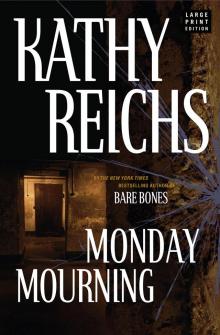 Monday Mourning
Monday Mourning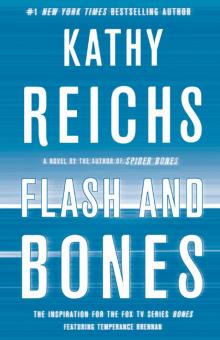 Flash and Bones
Flash and Bones Cross Bones
Cross Bones Devil Bones
Devil Bones Break No Bones
Break No Bones Swamp Bones
Swamp Bones Déjà Dead
Déjà Dead Shock
Shock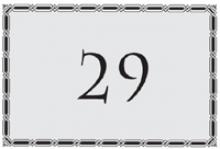 Spider Bones
Spider Bones Death Du Jour
Death Du Jour Grave Secrets
Grave Secrets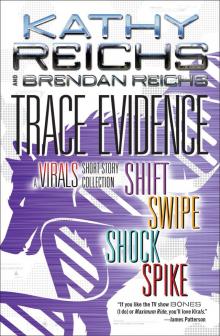 Trace Evidence: A Virals Short Story Collection
Trace Evidence: A Virals Short Story Collection Bones on Ice
Bones on Ice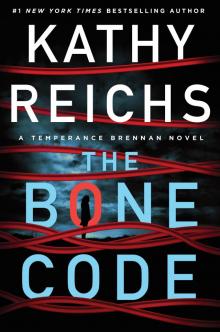 The Bone Code
The Bone Code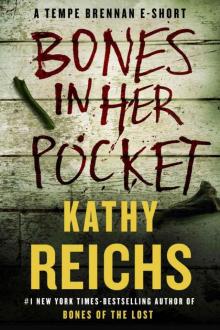 Bones in Her Pocket
Bones in Her Pocket Seizure:
Seizure: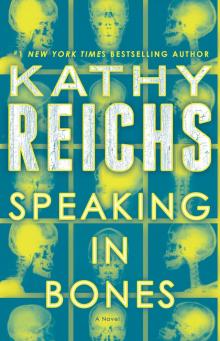 Speaking in Bones
Speaking in Bones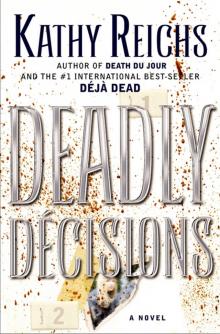 Deadly Decisions
Deadly Decisions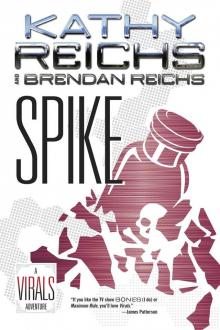 Spike
Spike Bones Never Lie
Bones Never Lie Bones of the Lost
Bones of the Lost Virals 03.5 - Swipe
Virals 03.5 - Swipe Exposure
Exposure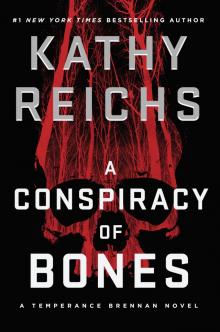 A Conspiracy of Bones
A Conspiracy of Bones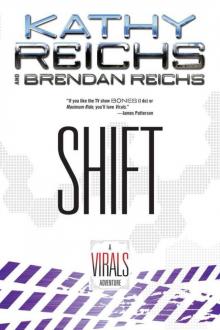 Shift (tory brennan)
Shift (tory brennan) Bones of the Lost: A Temperance Brennan Novel tb-16
Bones of the Lost: A Temperance Brennan Novel tb-16 Virals tb-1
Virals tb-1 Bones Are Forever tb-15
Bones Are Forever tb-15 Code tb-3
Code tb-3 Seizure tb-2
Seizure tb-2 Deadly Descisions
Deadly Descisions Spider Bones: A Novel
Spider Bones: A Novel